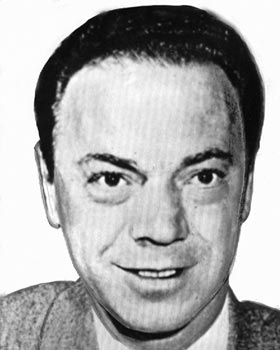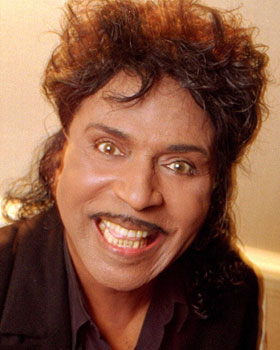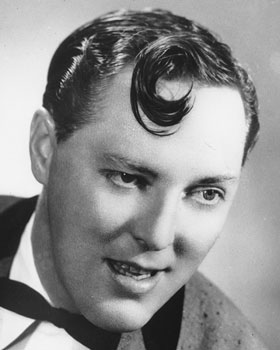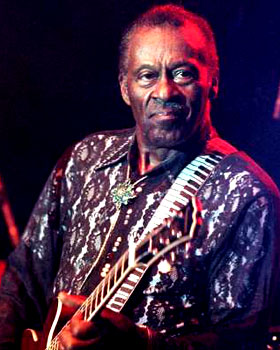Alan Freed
Credited by pop historians as being the first to apply the term "rock 'n' roll" to the music genre, controversial '50s disc jockey Alan Freed later became the center of the payola scandal before fading to a sad, premature demise.
Starting in Cleveland and dubbing himself the Moondog, this average-looking white guy was the John the Baptist of rock 'n' roll. At the time, Freed was arguably the best known of a series of DJs around the country breaking down walls of segregation and turning suburban kids on to the excitement of black music, and artists such as Little Richard, Bo Diddley, Fats Domino and Chuck Berry.
On July 11, 1951, he debuted on Cleveland's WJW-AM, hosting a show playing rhythm and blues records — songs that he began calling rock 'n' roll. The following March he promoted the first rock concert, the Moondog Coronation Ball at the Cleveland Arena. But the show ended in chaos when 20,000 fans stormed the doors of the 10,000-seat venue — an outcome that showed the surging popularity and unpredictability of the then-new youth music scene.
He left Cleveland for New York in 1954, spinning discs and promoting shows for WINS, and then WABC. At his peak in the late '50s, Freed orchestrated such then-unthinkable acts as allowing black singer Frankie Lymon to dance with a white girl on his New York TV show, "Big Beat." That broadcast ultimately led to the show's cancellation, a blow that came as Freed's marriage was falling apart, his health was declining and his debts were mounting.
Then, in 1959, in the wake of the quiz-show scandals, Freed became the most celebrated player in the FBI's investigation of radio payola, the then-common (and not yet illegal) practice in which record promotions men routinely delivered their latest platters with cash or other enticements to encourage airplay. His career was all but over, drummed out of the industry he'd boosted so much, and eventually to die broke and broken and forever associated with the scandal.
In 1960 he landed at KDAY in Los Angeles, but left after the station wouldn't let him promote rock 'n' roll shows. He hosted a twist revue in New York, then worked briefly at WQAM in Miami in 1962 before moving to Palm Springs, where he died of uremia Jan. 20, 1965.
Related stars
|
|





One thought about Alan Freed
Share a thought about Alan Freed